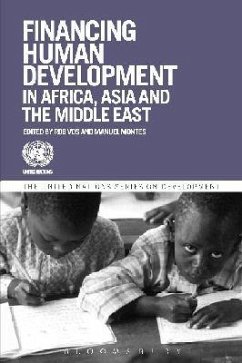
The New Middle East
Protest and Revolution in the Arab World
Ed. by Fawaz A. Gerges
Versandkostenfrei!
Versandfertig in über 4 Wochen
41,99 €
inkl. MwSt.

PAYBACK Punkte
21 °P sammeln!
The New Middle East is one of the first comprehensive books to critically examine the Arab popular uprisings of 2011-12. While these uprisings prompted a number of cursory publications, this volume contains meticulous and thoughtful reflections on the causes, drivers and effects of these seminal events on the internal, regional and international politics of the Middle East and North Africa. Although specific conditions in individual countries that have experienced large-scale popular mobilizations are investigated, they are neither treated in isolation nor separated from broader developments i...
The New Middle East is one of the first comprehensive books to critically examine the Arab popular uprisings of 2011-12. While these uprisings prompted a number of cursory publications, this volume contains meticulous and thoughtful reflections on the causes, drivers and effects of these seminal events on the internal, regional and international politics of the Middle East and North Africa. Although specific conditions in individual countries that have experienced large-scale popular mobilizations are investigated, they are neither treated in isolation nor separated from broader developments in the region. Instead, the authors highlight connections between individual case studies and systemic conditions throughout the Arab arena. These include the crisis of political authority, the failure of economic development and new genres of mobilization and activism, especially communication technology and youth movements. The careful analysis and reflection on the prospects for democraticchange in the region ensures the book will have both an immediate and enduring appeal.












